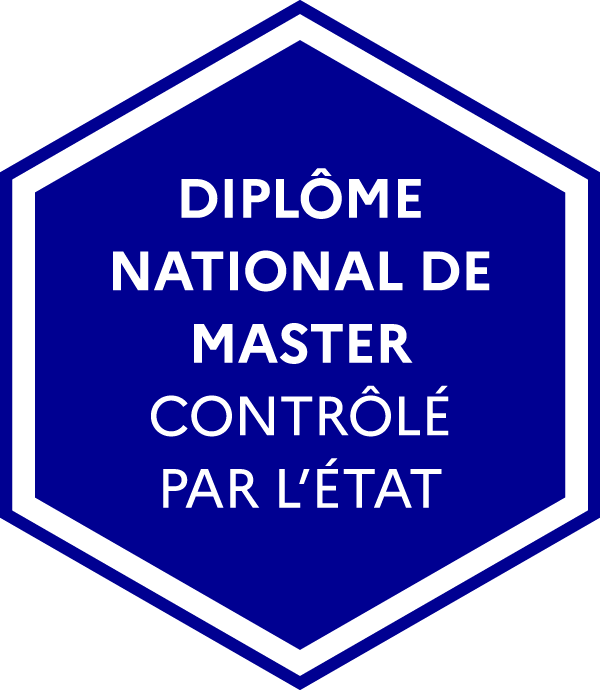Overview
Master
National diploma- Degree awarded Master
- Graduation year Bac + 5
- Graduation level Level 7
- Mention
- Cognitive Sciences
-
Location
- GRENOBLE Scientific Polygon
- Duration 2 years (1st year of Masters taught in English - 2nd year of Masters taught in French)
-
Available as
- Initial education
Summary
The originality of the Cognitive Sciences major is that it combines theories and techniques from the engineering and information processing sciences with knowledge and issues from the human and social sciences. Thanks to its multi-disciplinary nature, this major aims to offer a wide range of career opportunities in the fields of information science and technology, modelling, neuroscience and neuroimaging, communication and cognition, artistic creation, human-computer interaction, cognitive robotics, interfaces, and computer and conceptual environments for creation, training and teaching.
For more information, the detailed teaching programme and internship proposals can be consulted on the extended website : Master Cognitives Sciences, CNA path.
For more information, the detailed teaching programme and internship proposals can be consulted on the extended website : Master Cognitives Sciences, CNA path.
Objectives
The cognitive sciences aim to study and understand how humans extract, select, process and interpret information from their environment in order to produce appropriate responses. The aim is therefore to observe, study and understand the major mental functions of human beings (perception, action, memory, language, reasoning, learning, communication, etc.), to relate these mental functions to the study of behaviour in situations of interaction with the surrounding world, and to observe these capacities from different complementary angles: developmental, clinical and pathological. In studying these functions, cognitive science is also interested in our brain, as the basis of our knowledge and mental representations. To do this, cognitive science relies on the use of numerous functional and medical brain imaging tools: functional Magnetic Resonance Imaging (fMRI), electroencephalography (EEG) or transcranial magnetic stimulation (TMS), electrophysiology, etc. They also use mechanical, biomechanical and psychophysical measuring instruments on a number of scientific platforms that regularly welcome volunteers. Cognitive science is a highly multidisciplinary field, at the crossroads of a number of scientific disciplines and professional specialities, each with its own areas of observation and methods: psychology, biology, neuroscience, medicine, mathematics, computer science, signal processing, linguistics, anthropology, philosophy, speech therapy, ergonomics, educational science, sociology and communication science.
The links between the Grenoble research laboratories that are partners in the Master's programme and the Grenoble University Hospital, as well as the pooling of different experimental platforms (MRI, EEG, TMS, etc.), enable fruitful research in cognitive science. Thanks to these various collaborations, students enrolled on the CNA course are offered a large number of work placements, and the subjects of these placements, offered by various Grenoble laboratories, among others, are diverse and make the course rich.
This course is supported by the Grenoble Cognition cluster.
The links between the Grenoble research laboratories that are partners in the Master's programme and the Grenoble University Hospital, as well as the pooling of different experimental platforms (MRI, EEG, TMS, etc.), enable fruitful research in cognitive science. Thanks to these various collaborations, students enrolled on the CNA course are offered a large number of work placements, and the subjects of these placements, offered by various Grenoble laboratories, among others, are diverse and make the course rich.
This course is supported by the Grenoble Cognition cluster.
Specificities
- Very strong links with Grenoble research laboratories
- At the start of the course, visits to laboratories, their experimental platforms and the IRMage platform (site du CHU)
- Participation in research seminars offered by the laboratories
- A B2 level in English is required
- Placement in a research laboratory with a dissertation in the form of a scientific article.
-
Training partners
LaboratoriesParterns laboratoriesThe CNA programme is mainly supported by two Grenoble laboratories: GIPSA-lab (Grenoble Image Parole Signal Automatique) and LPNC (Laboratoire de Psychologie et NeuroCognition). Other laboratories in the Grenoble Cognition Cluster are also heavily involved in teaching and in welcoming students, in particular :- Grenoble Institut des neurosciences (GIN)
- Laboratoire d’Informatique de Grenoble (LIG)
- Laboratoire de linguistique et didactique des langues étrangères et maternelles (LIDILEM)
- Laboratoire Interuniversitaire de Psychologie : Personnalité, Cognition, Changement Social (LIP)
- Grenoble INRIA
The CNA course is mainly research-oriented. Students are therefore exposed to research in their courses, but also in the seminars they are required to attend and through the internships they are required to complete in M1 and M2. They are asked to choose placements with a strong research component. In addition, every year we organise visits to laboratories, during which researchers present their work, show students around their experimental platforms and talk to students.Other institution(s) delivering the degreeFormation co-accréditée par l'Institut polytechnique de Grenoble (Grenoble INP) et l'Université Grenoble 2 (UPMF).
Admission
- Who should apply? Bac + 3, Bac + 4
-
Available as :
- Initial education
Entry requirements
- Recommended Bachelor specialities for admission to Master 1 : Cognitive Sciences, Engineering Sciences, MIASH-MIASS, Mathematics, Computer Science, Physical Sciences, Life Sciences-neurosciences (subject to confirmation), Psychology (subject to confirmation)
- Recommended Bachelor specialities for admission to Master 2 : Cognitive Sciences, Psychology, Life Sciences and Neurosciences, Engineering Sciences, Language Sciences, Philosophy, Mathematics and Computer Science, Biology.)
- The Master 2 is accessible as a double-diploma engineering/master's programme for Phelma engineering students who have completed their second year in the BIOMED, SICOM and SEOC programmes (subject to acceptance by the programme managers concerned and the Cognitive Sciences managers).
>>> Click here to apply.
Contacts
Education contact
- MME Rufina FIORCAPUCCI
Secrétariat recrutement :
recrutement-masters@phelma.grenoble-inp.fr
Program
- Course duration 2 years (1st year of Masters taught in English - 2nd year of Masters taught in French)
- Internships abroad
Program
Master 1
Course taught in English language
Master 2
Course taught in French language
International
- Language of instruction Master 1 : 100% in English (except for a specialization course)
Master 2 : 100% in French (except for an introductory course in cognitive science given in English) - Internship abroad Yes
- Erasmus areas Materials science
Prospects
- Graduation year Bac + 5
- Graduation level Level 7
Expected learning outcomes
Target skills
- Carrying out a study in the cognitive sciences: posing a scientific problem, constructing and developing an argument, analysing the data, interpreting the results, drawing up a summary and proposing extensions.
- Adopt a multi-disciplinary approach incorporating knowledge of both the engineering sciences and the humanities, social sciences and/or neurosciences.
- Implement a project: define the objectives and context, carry out and evaluate the action.
- Working in a team: integrating, positioning and collaborating.
Careers
Jobs
In terms of professional challenges, this pathway responds to a growing demand for truly multidisciplinary skills, where skills in engineering sciences, information theory and knowledge of the humanities and social sciences are of equal importance, whether in the research sectors or the R&D sectors of industry. The CNA pathway aims to train for the following professions :
- Researcher, Teacher-researcher in cognitive science, information processing (image, speech), cognitive psychology, neuroscience, language science
- Teacher
- R&D engineer in Information Processing, Communication and Cognition (Robotics, Artificial Intelligence, Learning, Cognitive Ergonomics, Interfaces, etc.)
- Computer scientist/Design engineer
- Research and development technical manager
>>> Download the brochure
Further learning opportunities
The CNA pathway leads mainly to theses attached to the Engineering for Health, Cognition and the Environment (ISCE) doctoral school, but also to the Electronics, Electrical Engineering, Automation and Signal Processing (EEATS) doctoral school.
French State controlled Master's degree

Contacts
Consultez
Other institution(s) delivering the degree
Formation co-accréditée par l'Institut polytechnique de Grenoble (Grenoble INP) et l'Université Grenoble 2 (UPMF).
Internships
Minimum 5-month work placement. They can be carried out in France or abroad.



